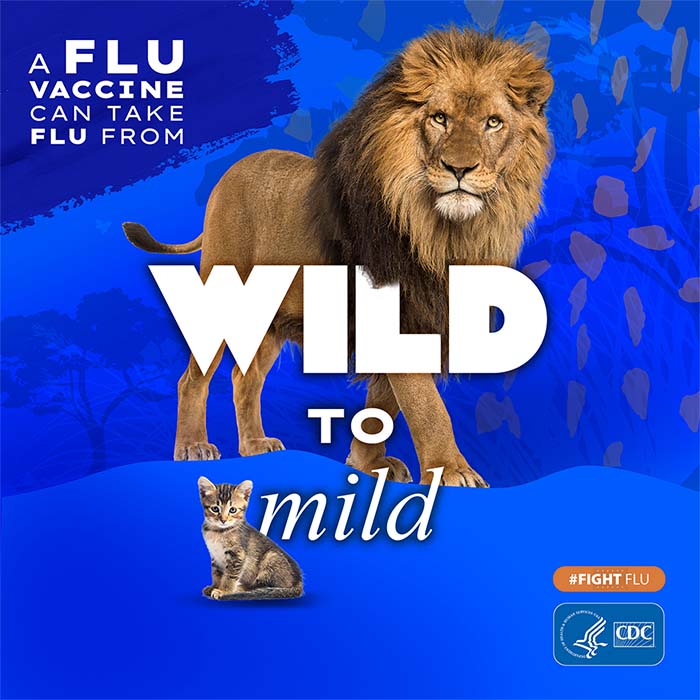Flu Fighter: Traci Gonzales
Meet flu fighter Traci Gonzales, a pediatric nurse practitioner at the McGovern Medical School at UTHealth in Houston. She leads a team of providers who do pulmonary testing on pediatric patients. Her passion is working with children with complex medical needs, both for their primary care and pulmonary conditions. She understands how devastating flu can be for children, especially those with certain underlying health issues. Therefore, she enthusiastically recommends that all her patients and their loved ones receive a flu vaccine each year.
Name: Traci Gonzales, APRN, PNP-C, AE-C
Title: Pediatric Nurse Practitioner at McGovern Medical School at UTHealth in Houston
Location: Houston, TX
- Can you share a few highlights of your experience in flu prevention? What is the most rewarding part of your work?
I provide comprehensive primary and pulmonary care to children with medical complexity. One of the care markers that we evaluate yearly in our clinic is the number of our patients who receive a flu vaccine. We are proactive in trying to prevent flu among the fragile population that we serve. Working with these medically complex children is rewarding in many ways. We have the opportunity to make a difference not only in the life of the child, but the family as a whole. One of the most rewarding parts of my work is watching an infant who came in to this world too early go from a medically fragile baby with tracheostomy, ventilator and gastrostomy, to a spunky 4 year old running down the hall free of medical equipment. To see these kids grow and go on to catch up with their peers is what our goal has been since day one. It is at that point that we know all the hard work was worth it and that child’s life is better because we were in it. Then we smile, hug the family, and send them out into the world, as we turn around to find the next child who needs our help. - In your role, how do you fight flu?
We strongly encourage our patients, their families, and all those around them to get their annual flu vaccine. Due to the complex nature of our patients, we have a low patient to provider ratio. Once we receive flu vaccines in our clinic, we call each patient’s family to schedule an appointment to come in and get vaccinated. As we near viral season, I also reiterate preventive measures, like hand washing and avoidance of sick contacts, at each clinic visit. - What is the most difficult part of flu prevention?
The flu is a crafty little virus that can change from year to year. Due to this variability, deciding which viruses to include in the vaccines can be difficult. Experts make the most educated guess possible, however, there is never a guarantee. The inability to predict exact viruses can definitely be problematic in prevention. Also, overcoming barriers to vaccination can make prevention difficult. Whether it be access to care, financial constraints, distrust in the effectiveness, familial influence or fear of the vaccine, there are multiple factors that can hinder a family from coming in for vaccination. - How do you discuss flu vaccination with your patients?
I always encourage yearly flu vaccination for both the patient and the family. I often start talking about this at my very first office visit with them. I get quite a few patients from the Neonatal Intensive Care Unit (NICU), often on ventilators or other mechanical devices. At the new patient visit, no matter what time of the year, I talk about the importance of keeping the child healthy and protecting their lungs, this includes getting the flu vaccine every year. I then continue to have this same conversation throughout the year. I am proactive in addressing common myths or concerns such as the flu vaccine made me sick, or I got the vaccine but still got the flu, by providing education regarding how the vaccine works and its effectiveness, even if it’s reduced. I also think that it is important to highlight the fact that flu can be devastating, even fatal, to anyone not only children with underlying disease and we may not be able to predict how an individual will respond. Prevention is the key to avoiding bad outcomes. - What would you say to those who are hesitant about getting a flu vaccine?
Whenever I have parents or patients who are hesitant to receive a flu vaccine, I first have them explain to me why. I can give all kinds of data and literature explaining why it is safe and beneficial, however, I find that by addressing their exact concern I stand a better chance of making a difference. Unfortunately, there is a lot of false information out there on social media and throughout the internet. I can understand why a parent might be fearful after reading some of the articles. By addressing the fear head on with evidence based information, I find that I’m often able to put those fears to rest. I also talk about being a mom, not just a provider. As a provider, I encourage all of my patients to get a flu vaccine. As a mother, I make sure that my son gets it every year. I would never willingly give something to my child that I thought was harmful. If I thought it was ineffective, I wouldn’t take the time out of our crazy busy schedule to have it done, or put him through the discomfort of the injection. I understand the importance of yearly vaccination and place value on ensuring my son receives it. I find that sometimes relating on a parental level can be very effective. Even if the family refuses a flu vaccine this year, I continue to talk with them each year. I ask for specific concerns and address fears in hopes that they will eventually change their minds. - What advice would you give to other health care professionals to improve their flu vaccination rates?
It may not be feasible in all clinics, but calling patients once flu vaccines are available and scheduling them to come in can be very effective. Having a “Vaccine Champion” in the clinic can also be helpful. This person would be responsible for ordering the vaccine, educating staff in regards to policies and administration, and overall coordination of efforts in the office. Also, providing flu clinics in the evenings or weekends helps working parents. Try to make these clinics quick and efficient. As a parent who has worked all day, I would not want to sit in an office for an hour waiting for a flu vaccine. However, if you can get me in and out within 15-20 minutes, I’m much more likely to be compliant with the appointment. If at all possible, giving the entire family the vaccine at the same visit decreases the risk that one family member would pass the flu on to another. Another great idea is bringing the vaccine to the community. Hold a flu clinic at a school, grocery store, local park, etc. By bringing vaccine to the community, you can overcome barriers associated with access to care

